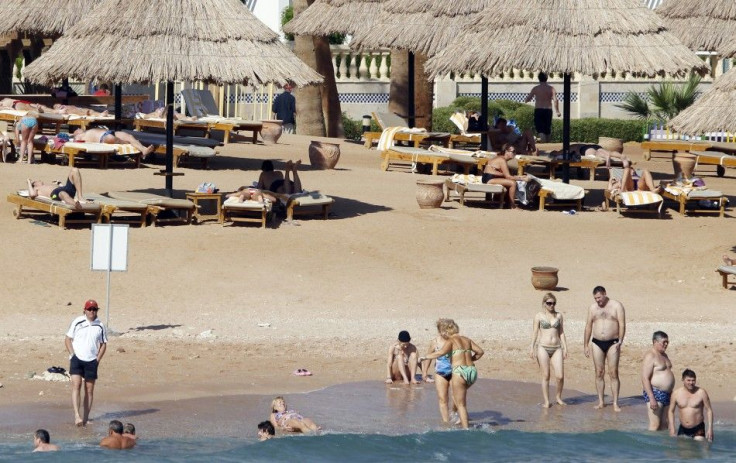Under Mohamed Morsi, Will Egypt?s Tourism Industry Conform To Islamic Law?

What happens when an Islamist politician ascends to the peak of executive power in Egypt, the Arab world's most populous country? That's the question on the minds of many in Egypt's battered tourism industry who worry about the future under the newly-elected president, Mohamed Morsi.
Egypt's tourism industry depends on the millions of foreigners who flock to the country's towering pyramids and Red Sea resorts each year. But many Western travelers, as well as Arabs seeking respite from their more austere governments, are waiting to book their vacations until they're assured that calm is restored.
Tourism is one of the most important sectors in the Egyptian economy and the source of income for approximately 20 percent of the labor force. But the industry collapsed last year during the Arab Spring, and it has yet to recover as others in the region have -- mostly due to lingering uncertainty about Egypt's future.
Revenues are down by more than 30 percent since 2010, with travelers generally avoiding the country due to violence and sporadic protests. Arrivals from Russia, for example, dropped 40 percent in 2011, according to the Association of Russian Tour Operators. Russia was Egypt's biggest source of tourism in 2010.
Morsi, a former senior member of the Muslim Brotherhood, has many Egyptians dreading bans on everything from alcohol to modern art to bikinis.
They say all the right things, but this isn't enough. We still need to see policy, Sami Mahmoud, head of the international sector at Egypt's Ministry of Tourism, told Ahram Online.
Egypt may capture the popular imagination for its pharaonic ruins, but it's beach tourism that makes up the majority of the industry's revenue. Roughly 14.7 million tourists visited Egypt in 2010, and about 11.1 million of them came from Europe, mostly on package tours to Red Sea resort cities like Sharm el-Sheikh and Hurghada.
On Wednesday, Yasser Ali al-Afdal, Morsi's temporary official spokesperson, said tourism will play a major role in Morsi's program. He added that all actions taken during the first 100 days of the president-elect's program would benefit Egypt's economy and particularly the tourism sector. But he cautioned that the growth of the tourism industry would not be achieved without stability and an atmosphere that encourages foreign visits.
Restoring this confidence will be crucial to Egypt during its fragile transition, and Morsi is likely well aware that bans on alcohol and bikinis in the near future will only result in turning more people away. And it's not just the Westerners who would be put off. Egypt receives a great number of tourists from Saudi Arabia, for example, who flock to Alexandria and Cairo in search of social freedoms and the chance to share time on a non-segregated beach.
Despite his background, Morsi struck a conciliatory tone in his presidential acceptance speech, pledging to revive Egypt's economy and build a pluralistic society that serves all Egyptians. The Muslim Brotherhood's Freedom and Justice Party (FJP) has repeatedly denied any plans to restrict what tourists wear, eat and drink. Morsi, however, indicated earlier this month at an appearance at Sharm el-Sheikh that he will try to encourage more (wholesome) options like medical, cultural, and spiritual tourism.
Hazem Shawky, head of the party's tourism committee, said people working in the tourism have no reason to worry.
We're practical, he told Ahram Online. We will not make any decisions that would harm the livelihoods of the millions of Egyptians who work in the industry.
Shawky added, however, that people are changing and the party will reflect the people's will.
I can't tell you what the tourism sector will look like in the long term, he cautioned.
Egypt faces a delicate balance that's familiar in places like the United Arab Emirates and the Maldives -- Muslim nations where tolerating foreign holidaymakers and avoiding religious backlash is touch and go.
With investment in the country drying up, foreign currency reserves plummeting 60 percent and unemployment soaring along with inflation, tourists may just be the country's biggest savior if it doesn't scare them away.
READ ALSO: Post-Arab Spring Travel And Tourism In The Middle East: A Country-By-Country Look
© Copyright IBTimes 2024. All rights reserved.






















